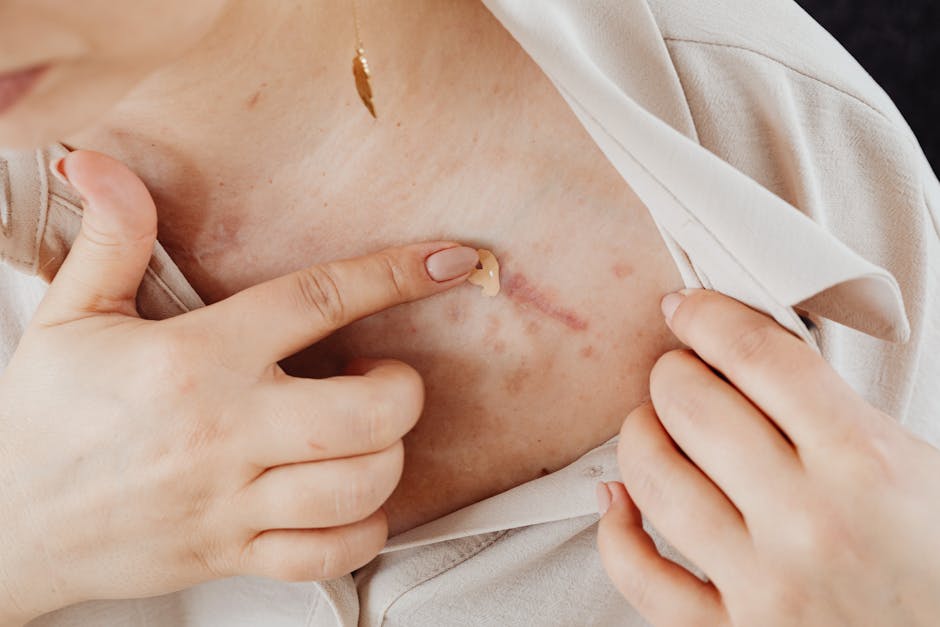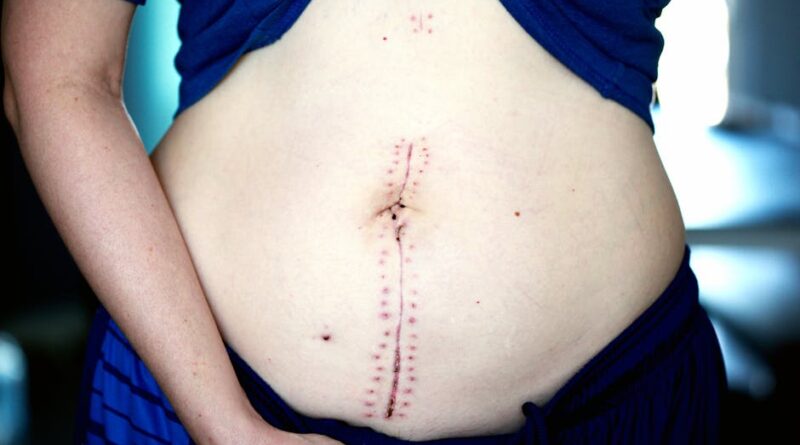Tips for Post-Surgery Recovery: A Comprehensive Guide
Undergoing surgery can be a daunting experience, but the journey doesn’t end in the operating room. Post-surgery recovery is a crucial phase that requires patience, dedication, and proper care to ensure a smooth and successful healing process. Whether you’re preparing for a major surgery or helping a loved one recover, having the right knowledge and tools at your disposal can make all the difference.
In this comprehensive guide, we will delve into the world of post-surgery recovery and explore a range of tips, strategies, and best practices to help you or your loved one navigate this critical period with confidence. From practical advice on managing pain to understanding the importance of nutrition and exercise, we will cover it all. So, let’s embark on this journey together and discover the key elements of a successful post-surgery recovery.
The Road to Recovery: Understanding the Basics

Recovering from surgery is not a one-size-fits-all process. The type of surgery, your overall health status, and individual factors can all influence the recovery timeline and outcomes. However, there are some universal principles that apply to most post-surgery recovery journeys.
First and foremost, it’s essential to follow your healthcare provider’s instructions to the letter. This includes taking medications as prescribed, attending follow-up appointments, and following any specific guidelines related to your surgery. Communication with your healthcare team is key, so don’t hesitate to ask questions or seek clarification on any aspect of your recovery.
Managing pain is often a top priority during the post-surgery period. Your healthcare provider will prescribe pain medications to help you cope with discomfort, but there are also non-pharmacological methods that can complement your pain management plan. These may include ice packs, elevation, relaxation techniques, and gentle movements to prevent stiffness.
Proper wound care is another crucial aspect of post-surgery recovery. Keeping your incision site clean and dry, changing dressings as needed, and monitoring for any signs of infection are essential steps in promoting healing and preventing complications. If you notice any redness, swelling, warmth, or discharge from the incision site, contact your healthcare provider immediately.
Rest and relaxation are vital components of the recovery process. Your body needs time to heal, so be sure to get plenty of sleep, take naps as needed, and listen to your body’s signals. Avoid pushing yourself too hard or engaging in strenuous activities before you’re ready. Slow and steady progress is key to a successful recovery.
Optimizing Nutrition for Recovery

Good nutrition plays a significant role in post-surgery recovery. Your body needs essential nutrients to repair tissues, fight off infections, and regain strength. Following a well-balanced diet that includes a variety of fruits, vegetables, whole grains, lean proteins, and healthy fats can help support your recovery process.
Protein is particularly important for healing after surgery, as it provides the building blocks for tissue repair and regeneration. Include sources of high-quality protein such as lean meats, poultry, fish, eggs, dairy products, legumes, and nuts in your meals and snacks. If you have specific dietary restrictions or preferences, consult a registered dietitian for personalized guidance.
Hydration is another key aspect of nutrition during recovery. Dehydration can slow down the healing process and increase the risk of complications. Aim to drink plenty of water throughout the day and limit your intake of sugary beverages and caffeinated drinks, as they can dehydrate you.
In some cases, your healthcare provider may recommend dietary supplements to support your recovery. These may include vitamin D, calcium, iron, or other nutrients that play a role in wound healing and immune function. Follow your provider’s advice regarding supplement use and dosage to ensure optimal recovery outcomes.
Lastly, be mindful of portion sizes and meal timing during the recovery period. Eating smaller, more frequent meals can help prevent digestive issues and provide a steady source of energy throughout the day. Listen to your body’s hunger and fullness cues, and adjust your intake accordingly.
Embracing Movement and Exercise

While rest is crucial for recovery, gentle movement and exercise can also play a beneficial role in promoting healing and preventing complications. Physical activity helps improve circulation, reduce stiffness, strengthen muscles, and boost overall well-being during the recovery process.
Start with simple movements and activities that are safe and comfortable for your body. Walking, stretching, and light resistance exercises can be excellent choices to get your body moving without overexerting yourself. Avoid high-impact or strenuous activities until you have received clearance from your healthcare provider.
Listen to your body’s signals during exercise and pay attention to any pain, discomfort, or fatigue. If you experience any unusual symptoms, stop the activity immediately and consult your healthcare provider. It’s essential to progress gradually and not push yourself beyond your limits, especially in the early stages of recovery.
Engage in activities that you enjoy and that bring you joy and relaxation. Whether it’s gentle yoga, tai chi, swimming, or gardening, find ways to stay active that align with your interests and preferences. Exercise should enhance your recovery experience, not add unnecessary stress or pressure.
Don’t forget to incorporate rest and recovery days into your exercise routine. Your body needs time to recover and rebuild after physical activity, so be sure to schedule adequate rest periods between workouts. Listen to your body’s feedback and adjust your exercise plan as needed to support your recovery goals.
Managing Emotional Well-Being

Recovery from surgery is not just a physical process; it also has emotional and psychological dimensions that can impact your overall well-being. It’s normal to experience a range of emotions during the recovery period, including anxiety, fear, frustration, and even depression. Taking care of your emotional health is just as important as caring for your physical body.
Stay connected with friends, family, and loved ones for emotional support and companionship. Share your thoughts, feelings, and concerns with trusted individuals who can provide a listening ear and offer encouragement. Social support plays a significant role in coping with the challenges of recovery.
Practice relaxation techniques such as deep breathing, mindfulness, meditation, or visualization to help calm your mind and reduce stress. These techniques can be valuable tools for managing anxiety, promoting relaxation, and improving your overall emotional well-being during the recovery process.
Engage in activities that bring you joy, pleasure, and a sense of fulfillment. Whether it’s reading a good book, listening to music, watching movies, or pursuing a creative hobby, find ways to nourish your soul and uplift your spirits. Self-care is essential for maintaining a positive outlook and resilience during recovery.
If you’re struggling with overwhelming emotions or mental health challenges during the recovery period, don’t hesitate to seek professional help. A therapist, counselor, or mental health provider can offer support, guidance, and strategies for coping with emotional difficulties and navigating the recovery journey.
Supporting Long-Term Recovery Goals
Post-surgery recovery is not just about the immediate healing process; it’s also about setting the stage for long-term health and well-being. Establishing healthy habits and routines during recovery can lay the foundation for a healthier lifestyle moving forward. Here are some tips for supporting your long-term recovery goals:
- Stay active and incorporate regular exercise into your daily routine to maintain strength, flexibility, and overall fitness.
- Follow a balanced diet rich in nutrients to support your body’s healing and provide sustained energy for daily activities.
- Attend follow-up appointments with your healthcare provider and address any concerns or questions related to your recovery.
- Engage in preventive healthcare measures such as vaccinations, screenings, and check-ups to stay on top of your health and well-being.
- Seek support from healthcare professionals, support groups, or online resources if you encounter challenges or setbacks during your recovery journey.
Remember that recovery is a gradual process that takes time, patience, and perseverance. Celebrate small victories along the way, and acknowledge the progress you’ve made, no matter how small it may seem. With dedication, self-care, and a positive mindset, you can navigate the post-surgery recovery journey successfully and emerge stronger on the other side.
Expert Opinions: Insights from Healthcare Professionals
According to Dr. Sarah Johnson, a board-certified surgeon specializing in orthopedic surgery, “Post-surgery recovery is a critical phase that requires close attention to detail and adherence to medical advice. Patients play a vital role in their recovery by following the prescribed treatment plan, attending follow-up appointments, and communicating openly with their healthcare team.”
Dr. Johnson emphasizes the importance of setting realistic expectations for recovery and recognizing that healing takes time. “Every individual is different, and the recovery process can vary depending on factors such as age, health status, and the type of surgery. Patience, perseverance, and a positive attitude are key to achieving successful outcomes,” she adds.
Dr. Mark Patel, a registered dietitian specializing in nutrition and recovery, highlights the significance of nutrition in the healing process. “Proper nutrition is essential for supporting tissue repair, maintaining immune function, and restoring energy levels after surgery. A well-balanced diet that includes a variety of nutrients is crucial for promoting optimal recovery outcomes,” Dr. Patel explains.
Both experts agree that post-surgery recovery is a holistic process that involves not just physical healing but also emotional well-being, social support, and lifestyle changes. By taking a comprehensive approach to recovery and addressing all aspects of health and wellness, patients can maximize their chances of a successful recovery and long-term well-being.
FAQs: Common Questions About Post-Surgery Recovery
- How long does it take to recover from surgery? The recovery timeline can vary depending on the type of surgery, individual factors, and overall health status. In general, it can take weeks to months to fully recover from surgery, with gradual improvement over time.
- What can I do to speed up the recovery process? Following your healthcare provider’s instructions, maintaining a healthy lifestyle, getting plenty of rest, eating a nutritious diet, and staying active within your limits can help support the recovery process.
- Is it normal to feel pain and discomfort after surgery? Yes, pain and discomfort are common after surgery as your body heals. Your healthcare provider will prescribe pain medications to help manage these symptoms, and non-pharmacological methods can also be used to complement pain management.
- When should I contact my healthcare provider during recovery? If you experience worsening pain, swelling, redness, or other concerning symptoms, contact your healthcare provider immediately. It’s essential to address any issues promptly to prevent complications and promote healing.
To Wrap Things Up
Post-surgery recovery is a complex and multifaceted process that requires attention to detail, commitment to self-care, and a positive mindset. By following the tips and strategies outlined in this guide, you can navigate the recovery journey with confidence and resilience. Remember that recovery takes time, so be patient with yourself and celebrate the progress you’ve made along the way.
Whether you’re recovering from a minor procedure or a major surgery, prioritize your health and well-being during this critical period. Stay connected with your healthcare team, seek support from loved ones, and take care of your physical, emotional, and mental health throughout the recovery process. With dedication, perseverance, and a proactive approach to recovery, you can achieve successful outcomes and emerge stronger on the other side.




